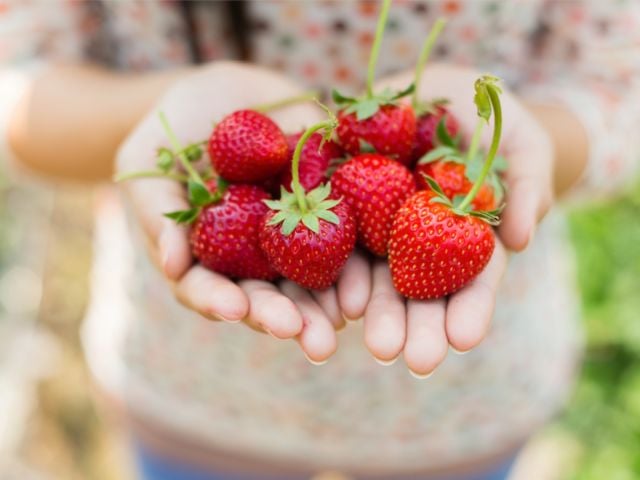
- Potassium bromate, added to flour used in many packaged baked goods, may cause cancer in humans.
- Several countries ban potassium bromate, including Brazil, Canada, the European Union and the United Kingdom. California also bans it, and Utah bans it in school meals.
- Despite health concerns, it’s legal for use in the rest of the U.S., and the Food and Drug Administration hasn’t reviewed it since at least 1973.
Editorial note: This article was updated on April 17, 2025.
Many packaged baked goods are made with flour that may contain potassium bromate, an additive linked to cancer. The chemical is added to flour to strengthen dough and allow it to rise higher, benefits that led many U.S. companies to embrace it.
EWG has identified over 200 products that contain potassium bromate, including Gomez flour tortillas, Hy Vee blueberry crisp and Hanover baked sourdough soft pretzels, among others. The use of this additive in the U.S. is widespread and legal, even though it’s been banned in other countries because of health concerns.
In 1999, the World Health Organization’s cancer arm, the International Agency for Research on Cancer, echoing the findings of several studies, determined potassium bromate may cause cancer in humans.
In lab tests, animals exposed to potassium bromate had increased incidences of both benign and malignant tumors in the thyroid and peritoneum, the membrane lining the abdominal cavity. Later research found that ingesting the additive increased cancer of the animals’ thyroid, kidneys and other organs significantly.
Science-backed bans
Because of these health concerns, the United Kingdom, Canada, Brazil and the European Union, among other countries, have banned potassium bromate.
Even with plenty of evidence showing the chemical’s potential to harm human health, it’s still legal for use in food sold in most of the U.S..
The food industry has long argued that potassium bromate isn’t a concern in baked products, because in theory the baking process fully converts it into potassium bromide, which is similar but does not cause cancer. But tests in the U.K. found that potassium bromate remains detectable after baking, with all six unwrapped breads and seven out of 22 packaged breads tested found to have measurable levels.
The Food and Drug Administration first approved potassium bromate for use in food in the 1960s. The agency in 1973 announced a planned literature review of the additive, but it’s unclear whether it was completed – and the FDA hasn’t assessed it since.
States taking the lead
Absent federal action, California and other states are stepping up.
California’s Food Safety Act, enacted in October 2023, bans the manufacture, sale and distribution in the state of foods containing potassium bromate, as well as propylparaben, Red Dye No. 3 and brominated vegetable oil, or BVO.
Following the success of that law, 18 other states have introduced bills to regulate or ban potassium bromate, which are currently working their way through the state legislatures.
In March, Utah enacted a law to ban the use in school meals of BVO, potassium bromate, propylparaben, titanium dioxide, Red Dye No. 40, Yellow Dye No. 5, Yellow Dye No. 6, Blue Dye No. 1, Blue Dye No. 2 and Green Dye No. 3.
Our broken food chemical review system
The U.S. food additive review system repeatedly fails to keep Americans safe. It needs an overhaul if it is to protect us from potentially cancer-causing chemicals like potassium bromate.
The state action on food chemicals can help to build pressure for the FDA to act. In November 2023, just one month after California’s law took effect, the agency proposed to revoke the authorization of BVO for use in food. In January, it announced a ban on Red 3 in food.
While we await the passage of more state legislation or new federal action, consumers can minimize exposure to potassium bromate by checking food labels and avoiding products that use it. You can also find food alternatives without potassium bromate by checking EWG’s Food Scores database, which rates products based on their nutrition, ingredient and processing concerns.



